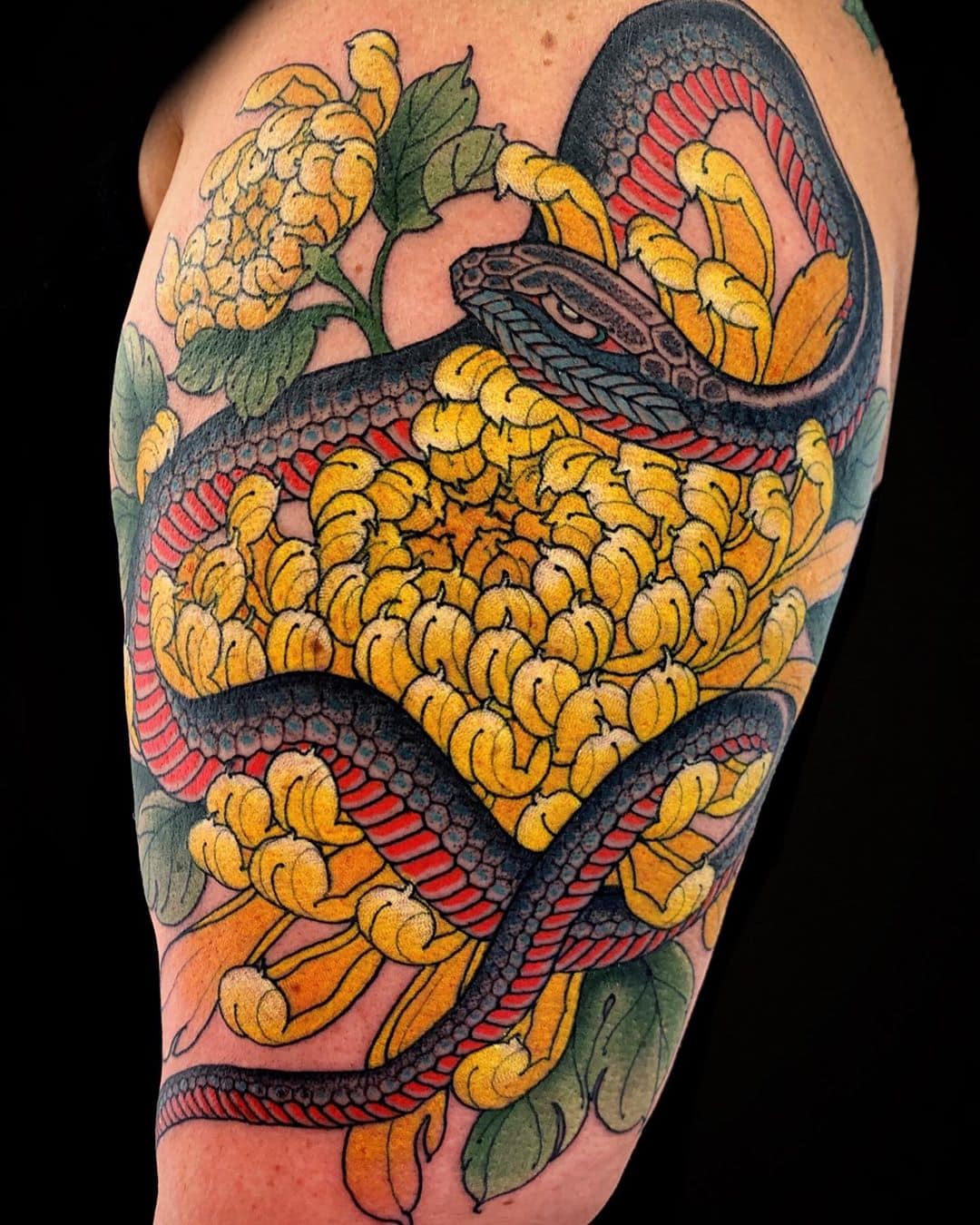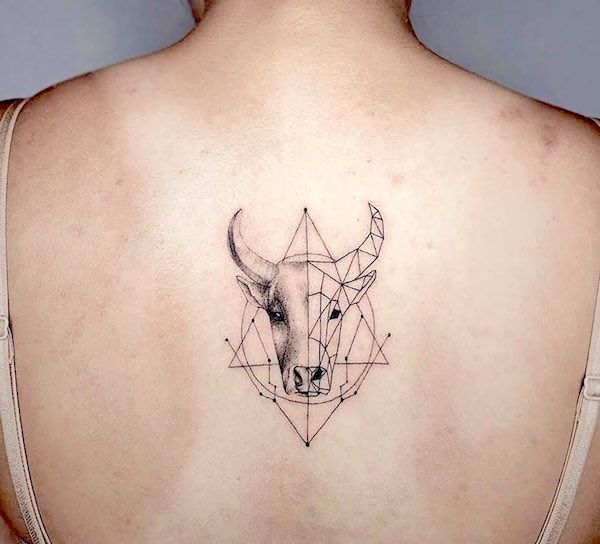Japanese snake tattoos are an eye-catching way to add spice and personality to anybody. Their bold designs can be combined with various colors and symbols for a truly personalized appearance.

Meaning
Japanese snake tattoos have long been seen as symbols of wisdom, life, and rebirth. A popular design that comes in various shapes, colors, and positions. Snake tattoos often signify death depending on their context or combination with other symbols or designs; however, in most cultures, their significance tends to be more positive than negative. Ancient Japanese believed snakes to be sacred creatures that served as the guardians of shrines and temples, representing renewal and rebirth through their ability to shed their skins. Japanese culture also holds snakes as symbols of purity and the Divine Feminine, with this belief stemming from their association with shedding skin like that of a snake; similarly, women can take on positive characteristics from men to become better individuals. White Japanese snakes have long been associated with the goddess Benzaiten, one of the Seven Lucky Gods. She represents wealth, wisdom, and femininity.
Styles
Japanese snake tattoos are one of the most iconic forms of traditional tattoo art, originating in Japanese culture with animals or mythological beings found within Japanese mythology symbolizing various ideas or meanings within society. Japanese snake tattoos, in particular, are often seen as protective symbols against illness and bad luck and represent renewal and transformation. Japanese culture does not associate snakes with negative connotations as much as Western culture does; this could be because snakes have long been featured in myths and tales as symbols of wisdom or good luck. Japanese snakes are well known for shedding their skin regularly as a sign of renewal and immortality, so getting a snake tattoo may serve as a powerful reminder to embrace change and take advantage of new opportunities that arise every day.
Symbolism
Japanese snake tattoos often symbolize ideas like rebirth and strength. They’re also popular among those looking for something original yet striking in their artwork. Snakes are widely revered symbols in Japanese culture as symbols of protection from illness and bad luck, making them an excellent addition to tattoo designs on one’s body. Color plays a significant role in Japanese culture and tradition, symbolizing power and vitality. A red snake tattoo can be an excellent way to show your strength. White is an integral part of Japanese culture and represents purity, rituals, ceremonies like weddings, good luck, and wealth. Japanese tattoo art often depicts the story of the phoenix as an iconic image. As snakes shed their skins, the phoenix rises from its death, representing renewal and rebirth.
Colors
Contrary to Western perception, Japanese culture reveres snakes as protectors against illness and bad fortune, symbolizing wisdom, good luck, strength, and change. Hebi (or snake) tattoos can be done in many different ways, and their meaning varies depending on their design. Hebi tattoos are popular Japanese-style tattoos found all across Japan and can be seen anywhere from wrists to arms or back. Hebi tattoos come in various forms, from full sleeves to small bicep tattoos that look as though they emanated from a skull’s head or wound around your body. Hebi are typically green; however, they can also come in red and black hues or be composed of any combination thereof and make for a potent symbolism.

